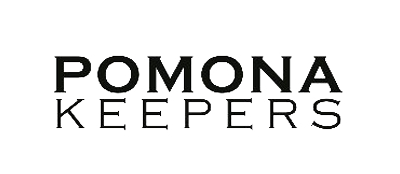To eliminate confusion around EVOO and to inspire consumers to value distinct varieties are two of the main topics that will be developed in the panel discussion “Talk, Taste and Tempt: How to Communicate the Extra Virgin Experience”, which will take place on March 27th at 14:15.
In the interview, Alexandra Kicenik Devarenne, co-founder Extra Virgin Alliance and international olive oil writer, teacher, consultant and judge based in California; Johnny Madge, olive oil tours and olive oil judge in international competitions based in Italy; and Malcolm Gilmour, importer, olive oil writer and translator based in Oxford, United Kingdom.
– People have been talking about and trading olive oil for millennia. Why do you think “How to Communicate the Extra Virgin Experience” is an important topic?
AKD: Before olive oil, I had a career in the media, so communication has always been an obsession of mine. Over the years, I have noticed that olive oil marketing and education often get stuck in a rut—doing and saying things over and over without noticing whether they are effective or not. I think the olive oil world needs to rethink a lot of its assumptions and become more relevant to consumers.
JM: It is important because, for example, some Italian supermarkets are beginning to stock modern olive oils but quite often the bottles get dusty. This is because: 1. people buy the cheaper olive oil on the next door shelf and 2. They have never tasted the good olive oils so they know no better. My background brings me to think that this is sad because they are missing out on such great flavours and the wonderful producers are not selling as much as they could be.
MG: Everyone agrees that we’ve never had it so good in terms of the product. Technology, producers and farmers have combined to make better, more distinctive and more diverse olive oils than ever before. And yet, it feels like the marketing and communication of olive oil hasn’t kept up with the pace in change. The result, in the UK at least, is that these “modern” oils haven’t yet found a market. In order to change this, I think we have to communicate differently.
– Your presentation is focused on the English-speaking markets. What do you see as the big opportunity in the US market?
AKD: There are many opportunities, but one of the trends that I think is most promising is the rise in cooking at home, but with a 21st Century twist. This increased interest in healthy home cooking —for busy people— with fresh ingredients, plant-focused meals and ethical sourcing is all exciting and very good news for extra virgin olive oil.
Q: Malcolm, what is your impression of the potential of the UK market?
MG: The UK market has many elements to capitalize on. Consumers are already familiar with food and dishes of producing countries; categories such as coffee, wine, beer, and cheese have shown there is an appetite to spend more on differentiated, non-commoditized products; and the take-up of vegetable-based diets and awareness of diet-based health issues is on the rise. The challenge is to get consumers to see extra virgin olive oil as something other than a commodity.
Q: Johnny, how would you characterize the average American or Briton on your olive oil tours?
They are curious about food and where it comes from, so in the olive groves and the mills they begin to understand how to make good oil and how to make bad oil. But they are nearly always very confused about the terminology: extra virgin, cold pressed… They are open to tasting the modern oils I have and are amazed by what they can do to transform food.
Q: Can you give us a little preview —a taste if you will— of some key points of your presentation?
JM: Clarity! I want to sweep away the mass of confusion around olive oil. I want the new oils which have clear, individual flavours to be seen as distinct just as Merlot is distinct from Pinot Noir. This can be experienced by tasting but can, at least, be suggested on the labels.
MG: I think the way we market and communicate olive oil using outdated and vague notions of “quality, tradition” and so on, serves to keep it as a commoditized product. I think we need to start talking about modern extra virgin olive oil in terms of its depth, diversity, and its ability to evoke a sense of place and transform dishes, and I’ll explore some ways we might be able to do that.
AKD: One major theme for me is to effectively tell the story of diversity in all aspects of extra virgin olive oil: various oil styles made from sundry different olive varieties and grown on farms of many sizes in many places by all sorts of people. This narrative is so important for elevating the product: we are all made poorer by an olive oil marketplace that pushes us towards homogeneity and low price as the road to success. This is a core goal of Extra Virgin Alliance: to celebrate this diversity, to inspire consumers to value and seek out these exciting products. I believe this generates the kind of connection and passion in consumers that makes them our best ambassadors!

![logo-wooe[2] logo-wooe[2]](https://oliveoilexhibition.com/wp-content/uploads/2021/06/logo-wooe2.png)
